
Vice-Chancellor's introduction
I will begin this month's bulletin by focusing on the future, with key updates on our ‘reset’ agenda, our University leadership team and our new strategy for making offers to applicants to turn around our student recruitment.
At a recent UEB Away Day we were joined by our Directors of Professional Services for important discussions on our immediate and longer term approach to reducing costs and improving efficiency. It was a full, engaging and very positive day of discussions leading to a clear way forward with a number of further potential actions identified as part of our reset programme. We will now review these further proposals and will be sharing with you over the coming months those agreed to be taken forward.
I also report on a number of significant Research and Innovation updates including changes to our Research Themes, successes and positive results in the Knowledge Exchange Framework (KEF) and significant activities in our Faculties.
Our University leadership team
We start this month with a warm welcome to Sherria Hoskins and Anne Murphy who have started their new roles as Provost and Deputy Vice-Chancellor (Education) following many successful years as Executive Deans of the Faculties of Science and Health and Humanities and Social Sciences. Their appointments show the strength of the talent that we possess within our University Community and I’m looking forward to them bringing their experience and perspectives to these new academic leadership roles at the University.
Paul Hayes, Senior Deputy Vice Chancellor, will provide support to Sherria and Anne as they take up their roles. I have also asked Paul to lead the Reset Task and Finish Group developing our response to the challenges that we currently face with our falling student recruitment and subsequent financial pressures. Paul will remain a key part of my leadership team until his retirement in February and as well as leading our ‘Reset’ activities he will also remain focused on the successful launch of our London Campus.
I’d also like to congratulate Richard Thelwell on his appointment as Interim Dean of the Faculty of Science and Health and Stephen Corbett as Interim Dean for the Faculty of Humanities and Social Sciences.
Many of you will already know Richard who held the post of Head of Sport, Health and Exercise Science. He brings a wealth of leadership experience from his role in the Faculty, the wider University including as a representative on the Board of Governors and externally with a number of professional bodies.
Stephen brings his knowledge as the Head of School to the role, with a broad perspective of HSS having previously been Head in a number of areas within the Faculty. He also brings a great deal of valuable experience by virtue of initiating and successfully leading a number of university wide projects with external partners.
Both Richard and Stephen commenced their new roles on 1 November.
Finally, Stephen Avery, Interim Chief Financial Officer, has made the decision to retire from working as a consultant with immediate effect. This is due to a change in his personal circumstances and following a period of reflection during his recent annual leave. I would like to thank Stephen for his enormous support over the past several weeks and I wish him well for his retirement. I am very confident that with Lesley MacLeod as interim Deputy Chief Financial Officer we will be able to progress all of our key initiatives without seeking a replacement for Stephen. I am also pleased to report that we are progressing well with our recruitment processes for a permanent Chief Financial Officer and we will of course share the outcome of that process once complete.
This all means significant change within UEB, but I strongly believe this will be very positive for our University. While this can feel a little unsettling, change is a healthy and invigorating part of the evolution and renewal of any organisation. Our University leadership remains strong and I’m very excited by the new team and confident that the energy, expertise and constructive challenge they will bring to UEB is exactly what we need. They will be able to build on the many positive aspects of our University at the same time as addressing those areas where we must improve.
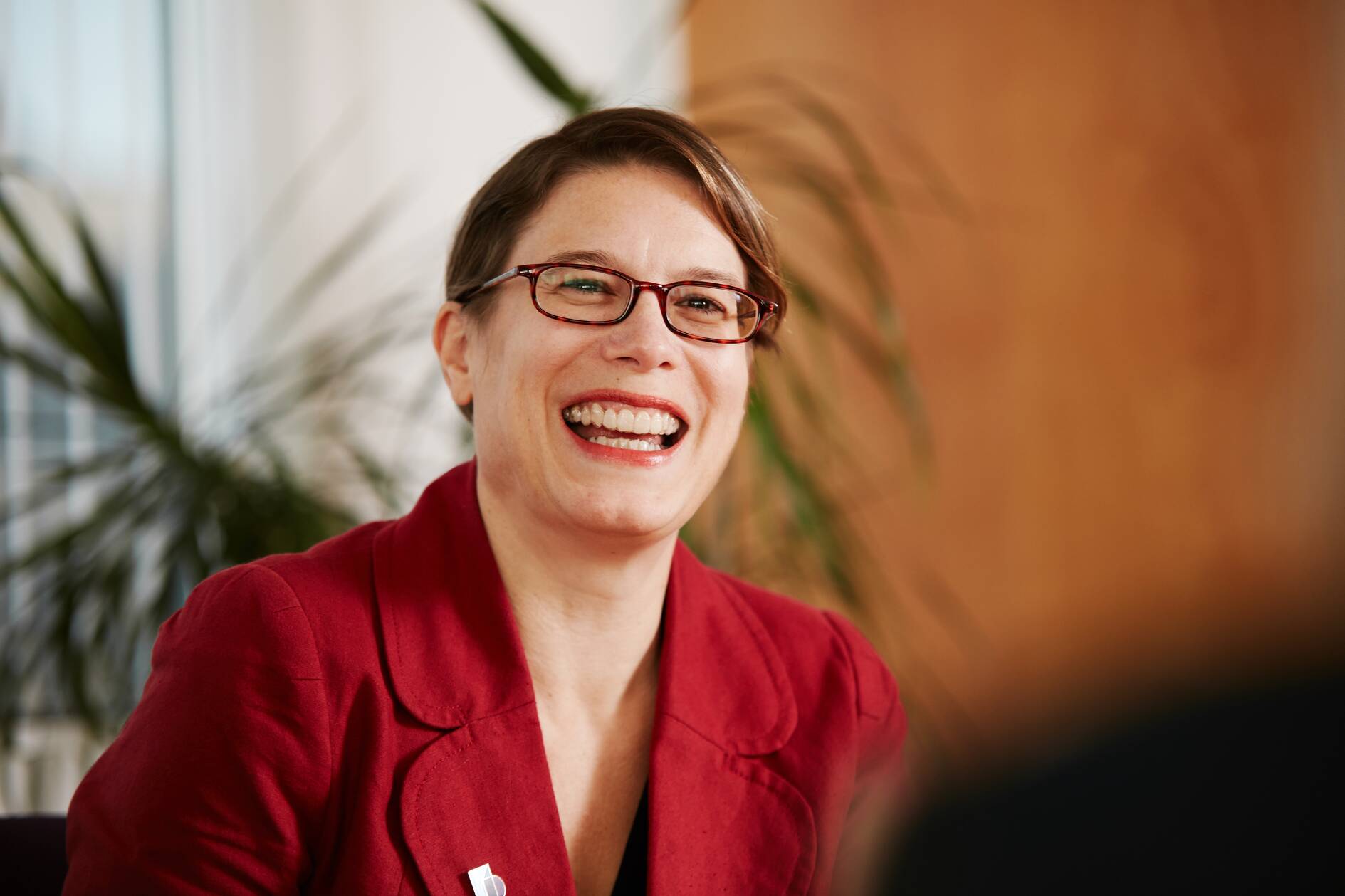
Sherria Hoskins, University Provost
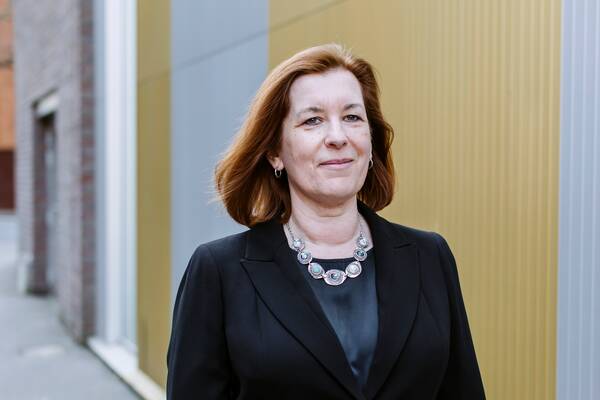
Anne Murphy, Deputy Vice-Chancellor (Education)
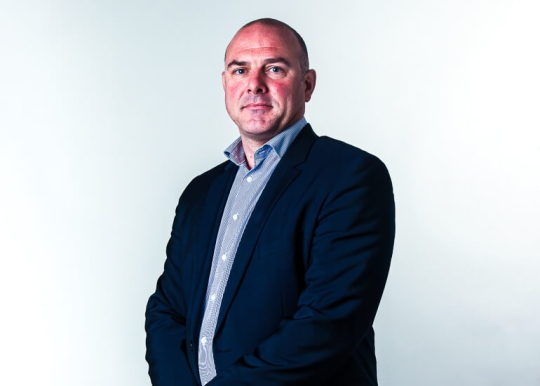
Richard Thelwell, Interim Dean of the Faculty of Science and Health
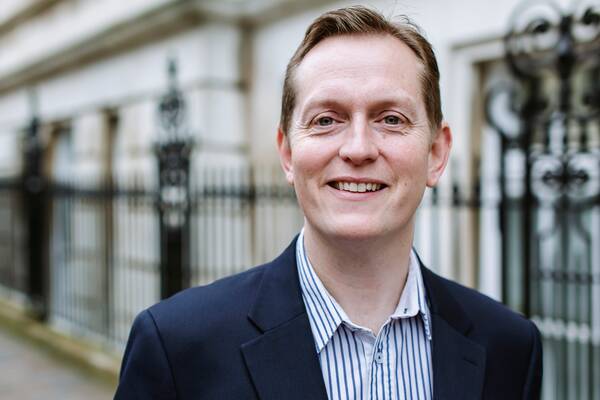
Stephen Corbett, Interim Dean for the Faculty of Humanities and Social Sciences
Updated structure chart
Here is a structure chart showing our senior Board of Governors’ Appointees which highlights their new roles and responsibilities.
This structure also shows a number of the other recent changes to senior roles which I hope is helpful in clarifying who is responsible for what and to whom they report.
Updated structure chart
Here is a structure chart showing our senior Board of Governors’ Appointees which highlights their new roles and responsibilities.
This structure also shows a number of the other recent changes to senior roles which I hope is helpful in clarifying who is responsible for what and to whom they report.
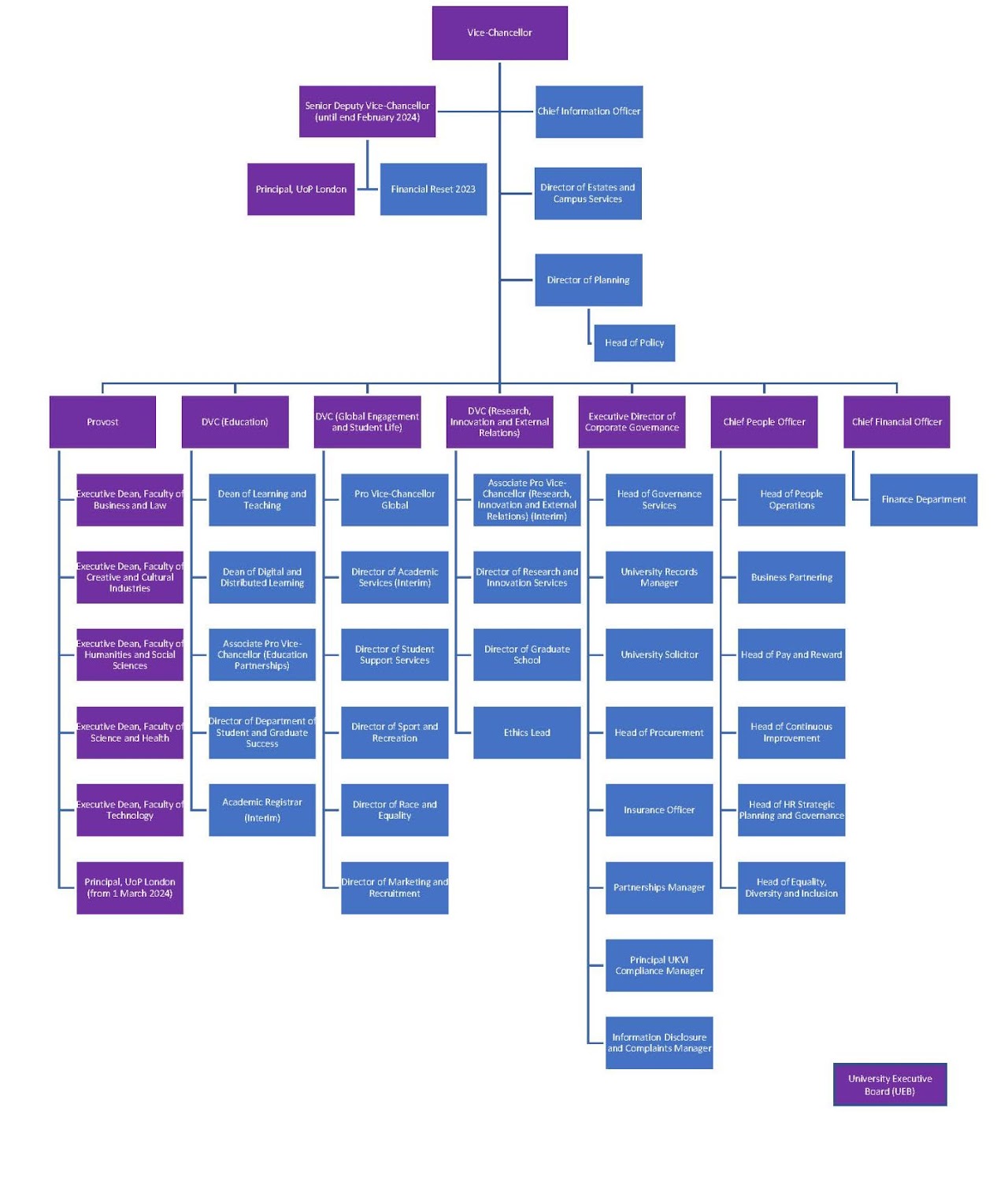
Structure chart for the Vice-Chancellor and direct reports
Improving access to higher education through our offer strategy and tariff adjustments
We must improve our efforts to break down socio-economic barriers that are growing in our society and fulfil our mission to encourage students of all backgrounds to apply to study one of our Gold-rated degrees, especially those individuals who live in our region.
We have always considered many factors when assessing a student’s potential, including achieved grades, GCSE performance, personal statements, and - for some courses - portfolios of work and interviews. As well as carefully considering the information students provide as part of their application, we also consider personal circumstances and experiences that may have affected their ability to demonstrate their true academic potential at school or college. This is identified using established widening participation data and for particular groups of students may result in an adjusted offer lower than the typical course offer. We will also issue adjusted offers to those within our region to fulfil our important regional role. Find out more on our new ‘How we make an offer’ information page.
We also recognise that the sector has recently seen lower A-level results in the last few years. Therefore we have reviewed our tariffs and made immediate changes for our 2024 intake. The course pages on our website and our Undergraduate 2024 (UG24) digital prospectus are now up to date and reflect the tariff adjustments across all our courses.
If you have any hard copies of the Undergraduate 2024 prospectus or course materials with the former tariffs on, these can now be recycled. Please refer to the website for the most recent tariffs with our new UG25 prospectus being available in February.
Research themes
Last month UEB approved a revised Themes Strategy moving from five to four themes to reflect the evolving global and financial environment. The reformulated theme areas are:
- Theme 1: Building an Inclusive and Growth-led Economy and Society (including arts, culture and the creative industries, social justice, understanding our past and heritage)
- Theme 2: Improving Health and Life Sciences (including the ageing society, and tackling infectious diseases)
- Theme 3: Protecting our Environment (including clean growth and clean energy, and ecosystem protection)
- Theme 4: Developing Enhanced Technologies (especially medtech, fintech, space technology, digital and AI)
Accompanying this change, UEB approved a switch from a leader based framework to a ‘project-based’ Research Theme approach, building on the existing Technology and Research Initiative Fund (TRIF) funding round. As a consequence the Theme Directors are in the process of stepping down from their 'directing roles' as they develop new roles.
Coinciding with this, we are sorry to lose Adrian Hopgood (Theme Director: Future and Emerging Technologies) who has taken early retirement. Adrian joined us in 2017 from the University of Liege in Belgium as Professor of Intelligent Systems and Executive Director of the Space South Central Enterprise Network. But we’re delighted to say that it won’t be a complete break with colleagues at Portsmouth as he will continue as Emeritus Professor and is open to involvement in any AI-related projects that may arise, so please keep in touch with him at adrian.hopgood@port.ac.uk.
KEF success
Our success in sharing knowledge, ideas and experience to benefit both the economy and society has been recognised in the latest Knowledge Exchange Framework (KEF).
While no overall ranking is provided, we compare very well against similar large institutions with broad discipline portfolios, with a rating of 4 out of 5 (with 5 the highest) in six out of seven categories:
- Research Partnerships
- Working with Business
- Local Growth and Regeneration
- Working with the Public and Third Sector
- Continuous professional development (CPD)
- Graduate Start-ups
A question was recently asked by a colleague about whether KEF is as important to us as Research Excellence Framework (REF) and the Teaching Excellence Framework (TEF). Let me reassure you that we take KEF very seriously as knowledge exchange is an essential part of our university mission. But perhaps what’s also true to say is that KEF, as the newest framework, doesn’t yet enjoy the same external profile as REF and TEF in the sector and wider community. The lack of overall ranking in KEF is perhaps also a factor, compared with much clearer and easy to remember messaging such as TEF Gold and a top 3 modern university for research power in REF.
While we should be proud of our success in KEF, we must equally be as enthusiastic about identifying where we can improve further still. Enhancing our performance in the seventh category of public and community engagement is a key target area for us - but an area I'm confident we can address in the coming months. There is an opportunity for you to share in public engagement activities through the University-wide Public Engagement Network, which is open to all with an interest in public engagement, whether you interact directly with the public or work more behind-the-scenes in the process.
You can join the network by searching ‘Public Engagement Network’ in Google Groups, or contact hannah.coombs@port.ac.uk.
Faculty research updates
There have been a number of noteworthy public engagement, grant allocations and partnership programmes over the past few weeks in our ambition to deliver globally-recognised research and innovative solutions, including:
The Faculty of Creative and Cultural Industries (CCI) has been a hive of Research and Innovation activity. Professor Hui Yu hosted the IEEE SWC 2023 conference and Dr Alex Sergeant instigated a new international conference called eXtending Reality: Immersive Design, Production and Technology. Professor Oren Lieberman hosted the 2023 conference of the Architectural Humanities Research Association entitled ‘Situated Ecologies of Care’ in CCI and Associate Professor Tom Sykes hosted a symposium called ‘Littoral Metaphors’, drawing on research with Dr Louis Netter dealing with reportage of English seaside towns. Dr Adrian Hull was awarded an XRNetwork+ grant from the EPSRC for a project called 'Photoreal CG Asset Acquisition for AI-Enhanced Feature Films' in collaboration with Dark Cosmos Creative. Dr Claire Bailey-Ross' tender for the next stage of AHRC's Towards A National Collection project working with Historic Environment Scotland. Associate Professor Cressida Bowyer and Dr Erika Hughes will be working with Grid-Arendal and collaborators in Kenya on a project called 'Enacting Systemic Change: Legislative Theatre for Inclusive Transitions to End Plastic Pollution' running a workshop in Nairobi in conjunction with the UN's INC-3 meeting.
In the Faculty of Science and Health, Professor Aldert Vrij has two new grants both starting this month: $178,644 Awarded for The Devil’s Advocate Approach to detect lying about opinions and a further $191,721 for Verbal cues in omission lies. Dr Lawrence Patihis has had a paper published in the prestigious Trends in Cognitive Sciences.
In the Faculty of Humanities and Science, Professor Stephen Corbett and the School of Education, Languages and Linguistics have recently launched a programme in Uzbekistan that equips headteachers to promote excellence in education across the country. In November, Uzbekistan school leaders will visit Portsmouth for the next phase of their training.
The University and TCL Global have partnered on a Knowledge Transfer Partnership (KTP) project, funded by a £250,000 UKRI Innovate UK grant, to improve the international student recruitment process through advanced AI technologies. Led by Dr. Mohamed Bader-El-Den from the School of Computing, the collaboration seeks to address the complexities of student recruitment in the UK and develop an AI-enhanced application system to adapt to various markets, expedite document checks, and offer better data analytics.
Staff events
Dates for your diaries:
- VC Address live broadcast (rescheduled) - Thursday 23 November at 11.00am - viewing link to be published nearer the time
- All-Staff Briefing and Q&A - Tuesday 28 November at 3.00pm - access online via Zoom